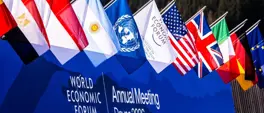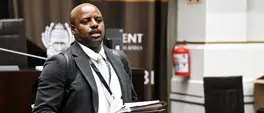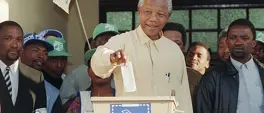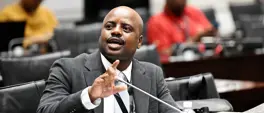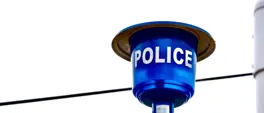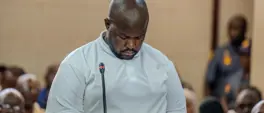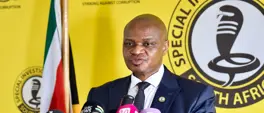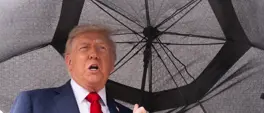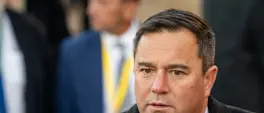MALAIKA MAHLATSI: The danger in allowing liberal media to decide who our heroes should be
Malaika Mahlatsi
31 October 2024 | 9:35There is a danger in allowing the liberal media to decide who is a hero and who, a villain. This is especially true when it comes to Black leaders, writes Malaika Mahlatsi.
A week ago, I wrote an article titled How the DA’s opportunism nearly destroyed a brilliant Black water scientist, reflecting on how the Democratic Alliance (DA) in Gauteng led a vicious campaign against the Group Chief Executive of Rand Water, Sipho Mosai. I argued that the DA did this with the help of a liberal media that is instrumental in cementing the narrative that Black leaders are inherently corrupt and inept. Mosai was unjustly attacked by DA Gauteng leader, Solly Msimanga, who entered the discussion on the water security challenges in Gauteng armed with dangerously little knowledge about the work and mandate of the bulk water utility.
In some circles, it was argued that I had attacked the media in defence of Mosai. I did not attack the liberal media – I simply exposed its double standards. The passion with which articles were being published about Mosai’s supposed ineptitude has faded when evidence to the contrary is now availed by water sector experts and the government. This is what I am challenging – alongside the habit of the liberal media to decide who the public should regard as a hero and who, a villain. Nowhere is this as pronounced as in the story of Gauteng Premier, Panyaza Lesufi, and the African National Congress (ANC) in Gauteng.
There was a time, in the not-too-distant past, when Lesufi was a darling of liberal media. In their eyes, the then member of the executive council (MEC) for education in the Gauteng province could do no wrong. He was regarded as hardworking, dedicated to the education sector and a visionary. Almost everything he said was deemed progressive, and even where a semblance of healthy scepticism existed, there was barely much interrogation. So revered was Lesufi that when analysis was made of matric results, Gauteng’s performance would be applauded without any regard for nuance. Gauteng would be compared to other provinces, and the narrative was always that Lesufi’s leadership was the reason for the province’s relatively great performance.
There is no question that Lesufi’s leadership as the MEC of education in Gauteng was commendable, but to have centred him in the story of great matric results without factoring in the comparative advantages of Gauteng was dishonest and simplistic. I argued on various platforms and articles that such a narrative was devoid of nuance. The fact of the matter is that as an industrial and well-resourced province, Gauteng had many advantages over poorer provinces such as the Eastern Cape, Mpumalanga and KwaZulu-Natal. The histories of these provinces, including the legacies of homelands that gave practical expression to the apartheid policy of separate and uneven development, have shaped a lot about them, including the spatial and non-spatial environment of their education sector. But this and many other nuances were ignored or downplayed by the liberal media, and the legend of Panyaza Lesufi, the "super MEC", was born.
Fast-forward to 2024. ANC loses its majority and a Government of National Unity (GNU) is formed. It is comprised of various political parties including the darling of liberal media – the DA. In Gauteng, where the ANC was decimated, a government of provincial unity (GPU) was formed without the DA after the provincial ANC refused to agree to its demands. Lesufi, as the chairperson of the ANC in Gauteng, is elected as the Premier of Gauteng and leads a GPU that does not include the DA. Suddenly, the man who was once revered as an outlier, a great leader in an ANC that is "rotten", has become a target for criticism – some of it unjustified. The narrative is no longer about a hardworking and progressive leader, but about a rogue element leading Gauteng to doom. All this because the seventh administration in Gauteng does not include the DA.
Curiously, the main thing that the liberal media used to applaud about the ANC in Gauteng is now the very thing that is being used to attack it. A few years ago, the ANC in Gauteng was characterised as "radical" and "bold" for openly criticising former President Jacob Zuma. Gauteng was the first province to demand that Zuma "do the right thing" following the Nkandla controversy. In addition to this, towards the 53rd National Conference of the ANC, the Gauteng Provincial Executive Committee (PEC) of the ANC had endorsed Kgalema Motlanthe for president - against Zuma. The latter would emerge victorious. This cemented the narrative of a "bold" Gauteng ANC that could stand firmly on principle even if it stood alone. The liberal media celebrated when the ANC in Gauteng challenged the national leadership on Zuma and many other issues.
Today, when the provincial leadership of the ANC in Gauteng challenges the idea that a government of unity across tiers of government must include the DA, the same liberal media turns around and calls the ANC in Gauteng rogue and ill-disciplined. What in the past was celebrated as its ability to swim against the tide is now demonised – and all this because it is the DA, not Zuma, on the receiving end of ANC Gauteng’s "boldness". We are now subjected to think-pieces insinuating that Lesufi is an incorrigible populist, a rogue element and inept.
There is a danger in allowing the liberal media to decide who is a hero and who, a villain. This is especially true when it comes to Black leaders. Our media has demonstrated many times that its "principles" when it comes to Black leaders are extremely malleable. It was prepared to provide the platform for a calculated attack on Mosai, a brilliant Black water scientist who is leading one of the best-governed entities of government. But now, despite his clear vindication, it is unwilling to set the record straight. It was comfortable with the ANC Gauteng leadership defying the national leadership on Zuma. But now, it is uncomfortable when that same provincial leadership opts for a different stance from the national leadership on the question of governing with the DA – a party that has been characterised as a bully by almost all parties it has been in coalitions with, and whose arrogance has continued in the GNU.
I cannot help but remember the profound words of Malcolm X, who said: "If you’re not careful, the newspapers will have you hating the people who are being oppressed and loving the people who are doing the oppressing". How very apt.
Malaika Mahlatsi is a geographer and researcher at the Institute for Pan African Thought and Conversation. She is a PhD in Geography candidate at the University of Bayreuth in Germany.
Get the whole picture 💡
Take a look at the topic timeline for all related articles.

